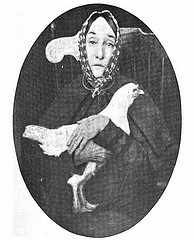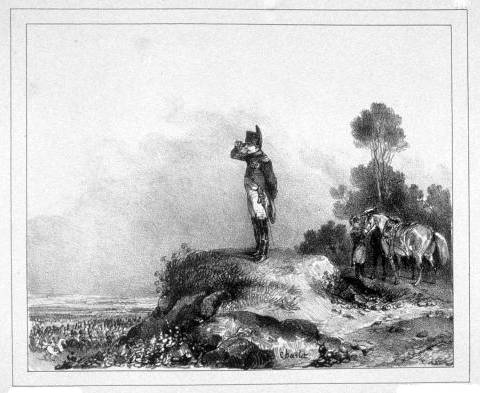There was a young fellow named Tait,
Who dined with his girl at 8:08;
But I’d hate to relate
What that fellow named Tait
And his tête-à-tête ate at 8:08!
— Anonymous, in A Book of American Humorous Verse, 1917
There was a young fellow named Tait,
Who dined with his girl at 8:08;
But I’d hate to relate
What that fellow named Tait
And his tête-à-tête ate at 8:08!
— Anonymous, in A Book of American Humorous Verse, 1917
There was a young man from Pall Mall
Who went to a fancy dress ball.
Just for the fun
He dressed up as a bun;
And was eat by a dog in the hall.
— Anonymous, in A.C. McClurg, The Humbler Poets, 1910
If down his throat a man should choose,
In fun, to jump or slide,
He’d scrape his shoes against his teeth,
Before he went inside.
But if his teeth were lost or gone,
And not a stump to scrape upon,
He’d see at once how very pat
His tongue lay there by way of mat,
And he would wipe his feet on that!
— Edward Cannon
Mrs. H.A. Deming spent a year assembling lines from 38 English and American poets into this mosaic verse, published originally in the San Francisco Times in the 19th century:
“Life”
Why all this toil for triumphs of an hour? [Young]
Life’s a short summer–man is but a flower. [Dr. Johnson]
By turns we catch the fatal breath and die; [Pope]
The cradle and the tomb, alas! how nigh. [Prior]
To be better far than not to be, [Sewell]
Though all man’s life may seem a tragedy; [Spencer]
But light cares speak when mighty griefs are dumb– [Daniel]
The bottom is but shallow whence they come. [Sir Walter Raleigh]
Thy fate is the common fate of all; [Longfellow]
Unmingled joys here no man befall; [Southwell]
Nature to each allots his proper sphere, [Congreve]
Fortune makes folly her peculiar care. [Churchill]
Custom does often reason overrule, [Rochester]
And throw a cruel sunshine on a fool. [Armstrong]
Live well; how long or short permit to Heaven. [Milton]
They who forgive most shall be most forgiven. [Bailey]
Sin may be clasped so close we cannot see its face– [French]
Vile intercourse where virtue has no place; [Somerville]
Then keep each passion down, however dear, [Thompson]
Thou pendulum betwixt a smile and tear. [Byron]
Her sensual snares let faithless pleasure lay, [Smollett]
With craft and skill to ruin and betray; [Crabbe]
Soar not too high to fall, but stoop to rise; [Massinger]
We masters grow of all that we despise. [Crowley]
Oh, then, renounce that impious self-esteem. [Beattie]
Riches have wings and grandeur is a dream. [Cowper]
Think not ambition wise because ’tis brave, [Sir William Davenant]
The paths of glory lead but to the grave; [Gray]
What is ambition? ‘Tis a glorious cheat, [Wills]
Only destructive to the brave and great. [Addison]
What’s all the gaudy glitter of a crown? [Dryden]
The way to bliss lies not on beds of down. [Francis Quarles]
How long we live, not years, but actions tell; [Watkins]
That man lives twice who lives the first life well. [Herrick]
Make, then, while yet ye may, your God your friend, [William Mason]
Whom Christians worship, yet not comprehend. [Hill]
The trust that’s given guard, and to yourself be just, [Dana]
For live we how we may, yet die we must. [Shakespeare]

Nancy Luce is remembered as a terrible poet, but her life was so sad that it’s hard to laugh. Described by one writer as “chicken mad,” Luce spent 76 years on Martha’s Vineyard, cultivating her birds as personal friends and selling poems about them to tourists. The poems reveal such misery that they can be moving despite their strangeness:
Poor little heart, she was sick one week
With froth in her throat,
Then 10 days and grew worse, with dropsy in her stomach,
I kept getting up nights to see how she was. …
Poor little Ada Queetie’s last sickness and death
Destroyed my health at an unknown rate,
With my heart breaking and weeping,
I kept the fire going night after night,
To keep poor little dear warm.
This was real pain, but visitors saw only an eccentric old woman. She died in 1890, unlamented — and tourists today leave plastic chickens on her grave.

Although the altitudes are three,
Remarks my daughter Rachel,
One point’ll lie on all of them:
The orthocenter H’ll.
By mathematician Dwight Paine of Messiah College, 1983.
(Further recalcitrant rhymes: month, orange. W.S. Gilbert weighs in.)
Esaw Wood sawed wood.
Esaw Wood would saw wood!
All the wood Esaw Wood saw Esaw Wood would saw. In other words, all the wood Esaw saw to saw Esaw sought to saw.
Oh, the wood Wood would saw! And oh, the wood-saw with which Wood would saw wood.
But one day Wood’s wood-saw would saw no wood, and thus the wood Wood sawed was not the wood Wood would saw if Wood’s wood-saw would saw wood.
Now, Wood would saw wood with a wood-saw that would saw wood, so Esaw sought a saw that would saw wood.
One day Esaw saw a saw saw wood as no other wood-saw Wood saw would saw wood.
In fact, of all the wood-saws Wood ever saw saw wood Wood never saw a wood-saw that would saw wood as the wood-saw Wood saw saw wood would saw wood, and I never saw a wood-saw that would saw as the wood-saw Wood saw would saw until I saw Esaw Wood saw wood with the wood-saw Wood saw saw wood.
Now Wood saws wood with the wood-saw Wood saw saw wood.
Oh, the wood the wood-saw Wood saw would saw!
Oh, the wood Wood’s woodshed would shed when Wood would saw wood with the wood-saw Wood saw saw wood!
Finally, no man may ever know how much wood the wood-saw Wood saw would saw, if the wood-saw Wood saw would saw all the wood the wood-saw Wood saw would saw.
— W.E. Southwick
Anthologist Carolyn Wells writes, “Well, you don’t have to read it.”

Bonaparte: Alone I am in this sequestered spot, not overheard.
Echo: Heard.
Bonaparte: ‘Sdeath! Who answers me? What being is there nigh?
Echo: I.
Bonaparte: Now I guess! To report my accents Echo has made her task.
Echo: Ask.
Bonaparte: Knowest thou whether London will henceforth continue to resist?
Echo: Resist.
Bonaparte: Whether Vienna and other courts will oppose me always?
Echo: Always.
Bonaparte: O, Heaven! what must I expect after so many reverses?
Echo: Reverses.
Bonaparte: What! should I, like a coward vile, to compound be reduced?
Echo: Reduced.
Bonaparte: After so many bright exploits be forced to restitution?
Echo: Restitution.
Bonaparte: Restitution of what I’ve got by true heroic feats and martial address?
Echo: Yes.
Bonaparte: What will be the fate of so much toil and trouble?
Echo: Trouble.
Bonaparte: What will become of my people, already too unhappy?
Echo: Happy.
Bonaparte: What should I then be that I think myself immortal?
Echo: Mortal.
Bonaparte: The whole world is filled with the glory of my name, you know.
Echo: No.
Bonaparte: Formerly its fame struck this vast globe with terror.
Echo: Error.
Bonaparte: Sad Echo, begone! I grow infuriate! I die!
Echo: Die!
It’s said that the Nuremberg bookseller who penned this clever bit of sedition was court-martialed and shot in 1807. Napoleon later said, “I believe he met with a fair trial.”
Nothing to do but work,
Nothing to eat but food,
Nothing to wear but clothes,
To keep one from going nude.
Nothing to breathe but air,
Quick as a flash ‘t is gone;
Nowhere to fall but off,
Nowhere to stand but on.
Nothing to comb but hair,
Nowhere to sleep but in bed,
Nothing to weep but tears,
Nothing to bury but dead.
Nothing to sing but songs,
Ah, well, alas! alack!
Nowhere to go but out,
Nowhere to come but back.
Nothing to see but sights,
Nothing to quench but thirst,
Nothing to have but what we’ve got;
Thus through life we are cursed.
Nothing to strike but a gait;
Everything moves that goes.
Nothing at all but common sense
Can ever withstand these woes.
— Ben King, collected in Joel Chandler Harris, ed., American Wit and Humor, 1907
“Oh, slip on something and come down quick!”
His wife exclaimed with a frightened air.
He did: and he feels he has been played a trick–
For he slipped on a rug at the top of the stair.
— Bert Leston Taylor, collected in A Book of American Humorous Verse, 1917